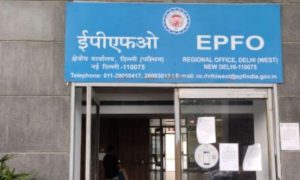New Delhi: Education loans come with appealing tax benefits, allowing borrowers to claim deductions on the interest component of their loan under Section 80E of the Income Tax Act. These loans serve to cover a range of academic expenses, including tuition fees, examination costs, laboratory fees, travel expenses, and expenditures on study materials such as books, equipment, stationery, uniforms, and more. Certain lenders may even include the coverage of insurance premiums as part of the loan package.
Also Read- Forex Update: India’s Foreign Exchange Reserves Rise $591 Million to $616.7 Billion
Eligibility for an Educational Loan?
Banks offer educational loans to eligible students seeking financial support for their educational pursuits. Many individuals have benefited from these loans, enabling them to advance their studies even when faced with financial constraints. However, not everyone qualifies for a student loan, as banks establish specific criteria that applicants must satisfy before being approved for any form of financial assistance.
Documents Required:
Admission letter from the educational institution.
Fee structure details.
Academic records, including Class X, XII, and graduation (if applicable) mark sheets.
Essential Steps:
Ensure eligibility criteria are met.
Gather the necessary documents for a comprehensive loan application.
Educational Loan Interest Rates:
When you’re seeking a student loan, the interest rate plays a pivotal role as it directly influences your monthly EMI (Equated Monthly Installment). It’s crucial to compare interest rates from various lenders before deciding on a loan. Generally, interest rates for education loans can range from 8 to 14 per cent, and the specific rate depends on factors such as the lender, the chosen course, and the institute.
For example, certain lenders might provide lower interest rates for students enrolling in prestigious institutes like IITs and IIMs. It’s wise to explore these options and choose the one that suits your needs and financial situation the best.
FAQs
What are the criteria for getting an education loan?
An applicant must be Indian. If the candidate is under the age of 18, their parents must apply for the education loan on their behalf. Furthermore, the applicant should be admitted to a reputable university or institution.
Is it possible to avail of an educational loan without a guarantor?
Usually, lenders require a guarantor when providing an educational loan. However, depending on the course and profile, a guarantor may not be needed.
Can any student get an education loan?
Yes, a student who wants to pursue higher education in a reputed university or college in India or abroad can apply for an education loan.
Why do education loans get rejected?
If an applicant’s parent’s credit score is less than 750, the bank may reject the education loan. Other reasons for your education loan being rejected include insufficient applicant information and enrollment in unknown institutions.
Also Read- Rupee rises 6 paise to 82.98 against US dollar
Can we get an education loan at 0% interest?
No, it is not possible to get an education loan at zero per cent interest. However, you can apply for several scholarship schemes where you can get an interest-free education loan.





































